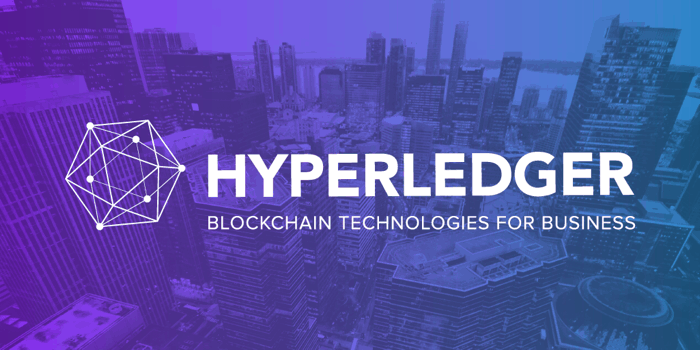Why Hyperledger Makes So Much Sense For Enterprises & Permissioned Blockchains

Hyperledger is designed for enterprises.
But before we see why it is so? Let’s see what it is:
“Hyperledger is an open-source project started by Linux Foundation which focuses on enterprise and business level application of Blockchain.”
Hyperledger community believes that every market will ultimately have its own chain because every business is different in its own way, and applications made for them should have its own set of rules.
Why Hyperledger Makes So Much Sense For Enterprises
So does that mean public and permissionless blockchain platforms are not capable of enterprise applications?
In the current scenario, the answer is, YES !!
That’s because public blockchains are yet not fully developed for enterprise-level applications.
WHY? Let’s look into the reasons:
- Every enterprise has different Strategies, tactics, and rules. They want to run by their own rules. But ethereum and other platforms are not yet flexible; developers have to use pre-defined rules and protocols which creates irregularities between enterprise and permissionless blockchain.
- In permissionless blockchain networks, every peer takes part in the validation of every transaction which slows down the consensus which affects the scalability of the blockchain.
- The most critical factor is confidentiality and privacy. In public blockchain networks, all the transaction are open for everyone to see. And this way the enterprise’s private and ingenious data can be exposed and their competitors or non–competitors can have an undue advantage over the enterprise, which is a massive threat to the enterprise’s business model
- In public Blockchain, every peer has equal power over the network and the blockchain, but this level of authorization is not useful for the enterprise level.
Hyperledger plugs all these holes in the current system !!!
Hyperledger’s unique architecture provides the functionality of pluggable consensus. That means the enterprise can use different consensus protocols as per their need. Hyperledger gives multiple options for consensus which enables the developer to customize as per their application
For example, You have created a simple voting DAap on ethereum for your bunch of friends but as the time passed DAap’s popularity increases the DAap starts lagging due to scalability problem. If you had used hyperledger, you would have a variety of options for consensus and scalability which are robust and fast.
Level of authorization is vital for an enterprise. In an enterprise, you can’t give equal access to all the employees, right!! Therefore a permissionless blockchain isn’t required here.
But Hyperledger which is a permissioned blockchain platform with private channels, Chaincodes, and membership services is a perfect fit for the enterprise usecase
- A private channel is a separate corridor between two parties where they can carry out their business privately disclosing no details to anyone else which is impossible in public Blockchain. The private channel provides a seamless transmission with privacy and immutability.
- Membership Services in Hyperledger enables confidentiality by assigning each peer a level of access or authority. Membership service is a brilliant way to distribute power and data access to employees ensuring immutability and censorship resistance in the system.
- Chaincode is a smart contract with pluggable consensus and different levels of authorizations which the public blockchains lack. Again Hyperledger excels here, Hyperledger smart contract(chaincode) is not associated with any cryptocurrencies. Hyperledger’s Chaincode provides a secure implementation of transactions and business logic in a fraction of time.
Now let’s visualize with an example:
Enterprise-A and Enterprise-B are merging to form a Bigger Enterprise-C.
Before every merger, an audit is carried out between companies.
If enterprises use public Blockchain for the merger, news will automatically be public because everyone can access public Blockchain, but enterprises don’t want that. Here, both can create a private channel through Hyperledger for audit which will ensure complete privacy and 100% data authenticity.
After the merger, Enterprise-A gain controls and want to change rules and protocols, this is impossible if we use ethereum or similar blockchains, but Hyperledger provides pluggable consensus which makes the change of rules and protocols a piece of cake.
Authorization also shifts because of the merger, an enterprise running on permissionless Blockchain cannot think of changing permission level.
With the help of Membership services in hyperledger, we can change the authorization level in just a few clicks.
Conclusion:
With pluggable consensus, private channels, an independent chaincode, and membership service, Hyperledger becomes an ideal platform for enterprise-level blockchain applications.
Adios !!
- What Are Blockchain Oracles? - May 30, 2020
- Why Hyperledger Makes So Much Sense For Enterprises & Permissioned Blockchains - May 15, 2019
